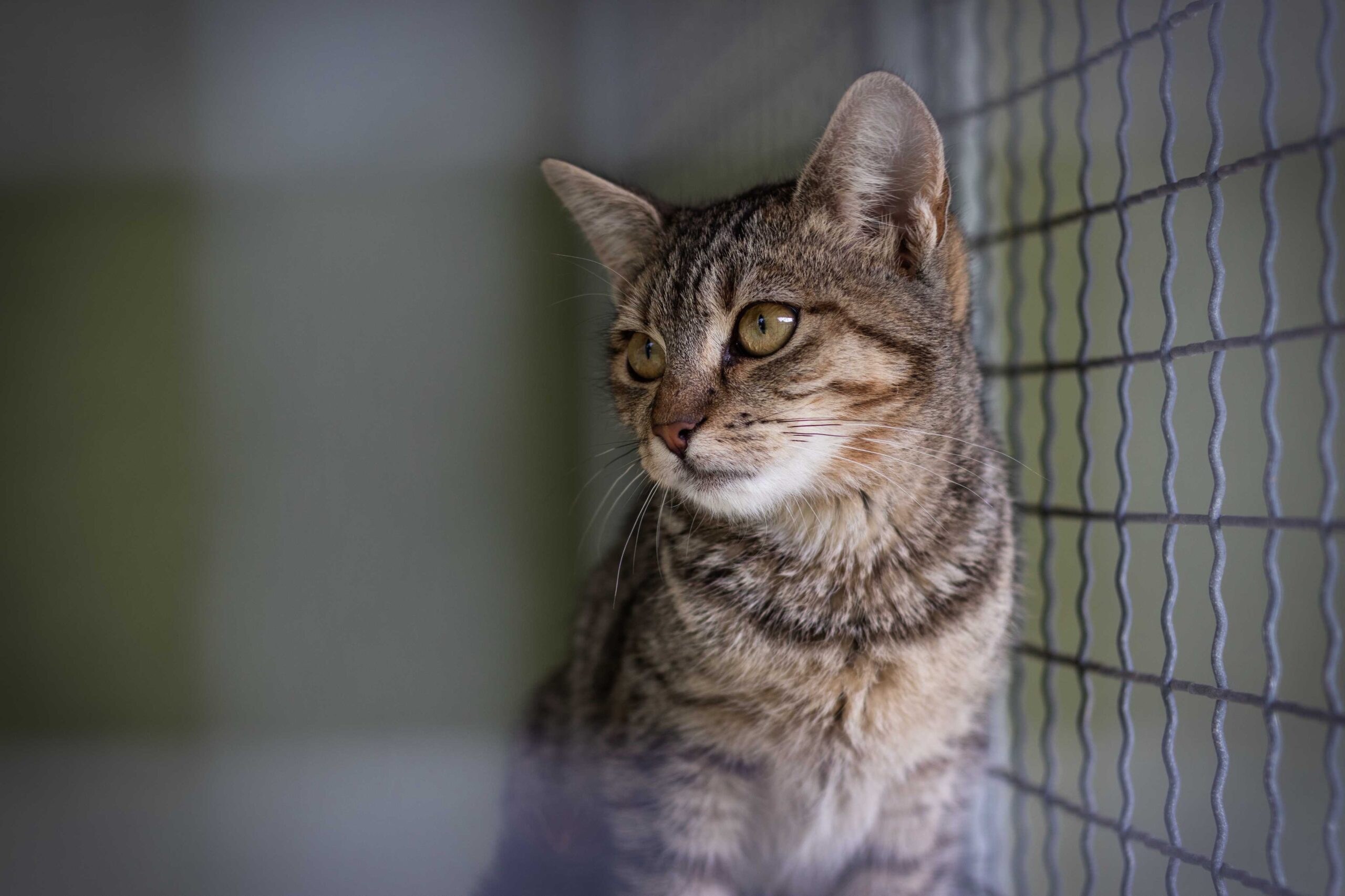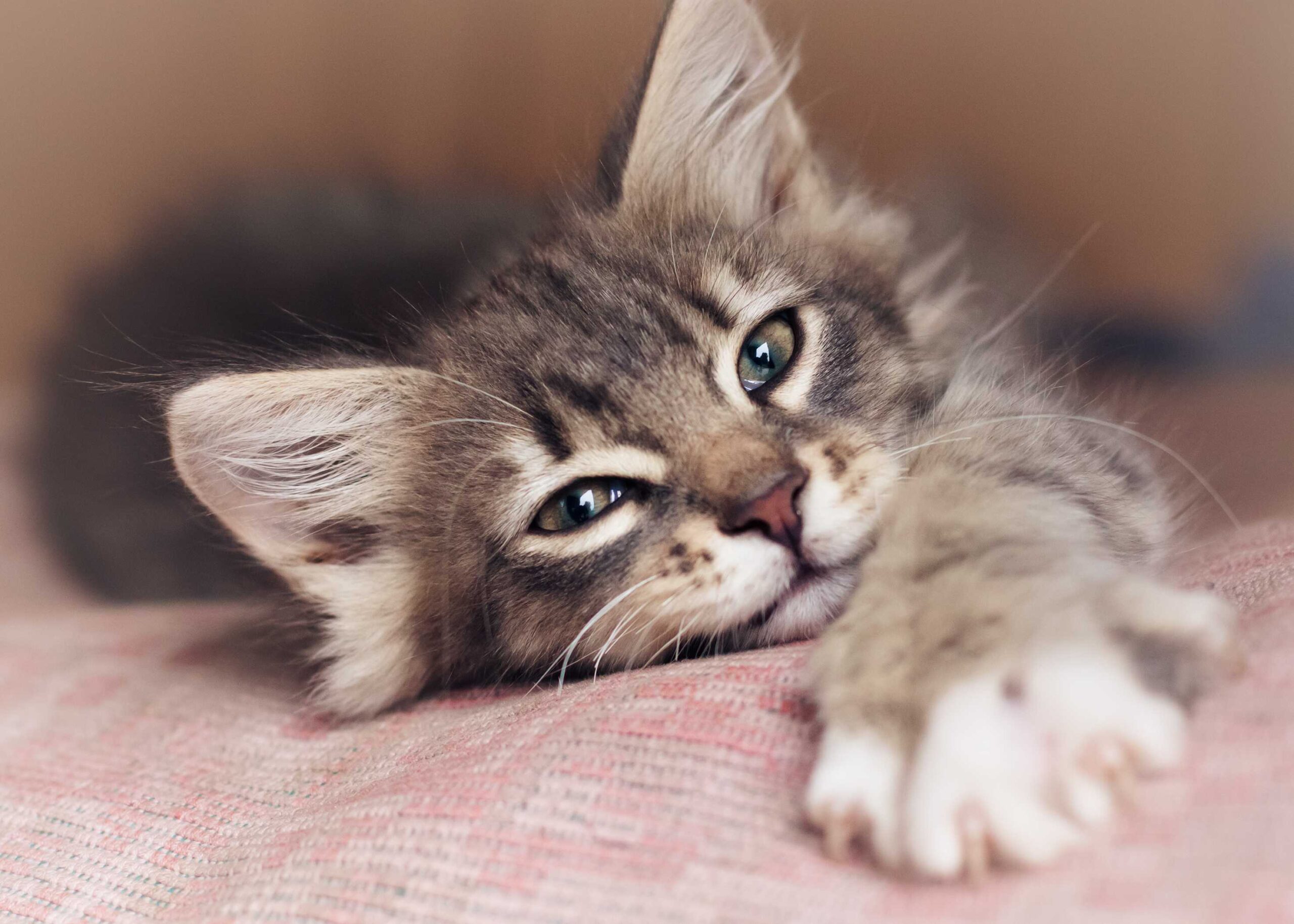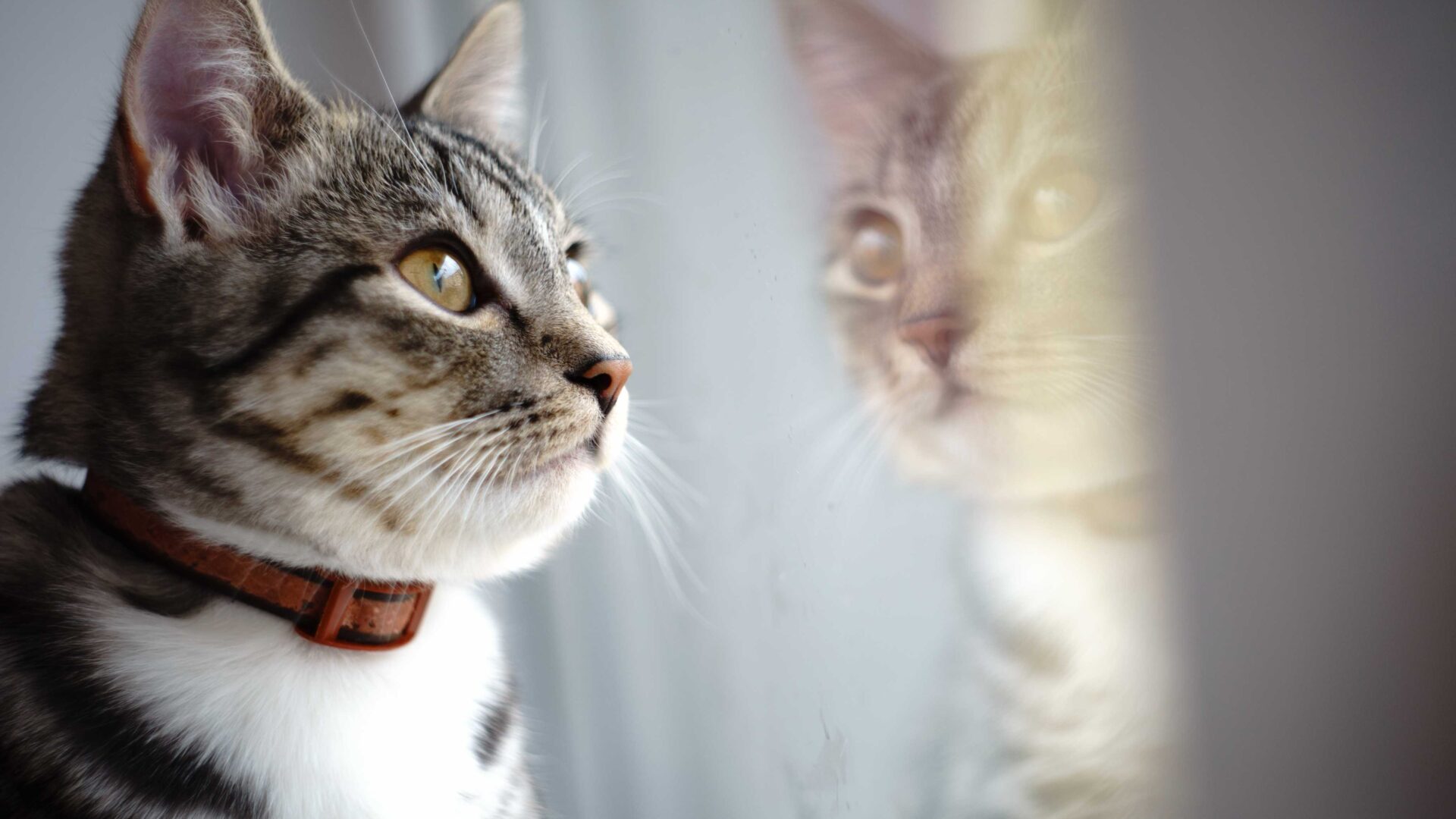Updated: 21/08/2024
There are few things in life more exciting than getting a new cat, but offering a cat a lifetime home is a huge commitment that could easily span 18 years (or longer!).
Whether you’ve owned cats previously or are thinking of becoming a first-time cat owner, it is always best to do your research and fully consider if getting a cat is the right choice for you.
To help you consider all aspects of cat ownership, we have compiled the following list.
On this page:
- Is a cat the right pet for you and your lifestyle?
- Is now the right time to get a cat?
- Do you have enough time and is the whole family committed?
- Can you afford all aspects of a cat’s care?
- Can you provide a cat with everything else it needs?
- Which breed of cat would suit you best?
- Is a kitten the right choice or would you be more suited to adopting an adult cat?
- How attached to your sofa are you?
- Will your other pets cope with a new cat?
- Do your future plans fit around owning a cat?
10 things to think about when deciding whether to commit to a new cat
1. Is a cat the right pet for you and your lifestyle?
It’s useful to think about the reasons for wanting a pet and why you want a cat specifically.
Consider the time commitments, cost, your current home and lifestyle and whether these fit with offering a cat the best possible life.
2. Is now the right time to get a cat?
Although the temptation to get a cat can be hard to resist, it is worth questioning when the best time is to get a cat.
If you have just moved to a new house, had a baby, scheduled building work or booked travel, it may be worth waiting until life has settled down before adding a cat into the mix!
3. Do you have enough time and is the whole family committed?
Caring for a new cat takes up a lot of time. Do you feel that your lifestyle has the time and flexibility to allow for this?
If you are making the decision to get a kitten as a family, is everyone committed?
Many hands make light work, although there often tends to be one main caregiver.
Do you have a plan for who will be on feeding, play and litter tray duty?
4. Can you afford all aspects of a cat’s care?
Providing for a cat is a costly and ongoing commitment. It is best to consider whether you can provide for a cat’s needs before bringing them home.
As an owner you will need to budget for pet insurance, vaccinations, flea and worming treatments, neutering, vet treatment (if they become poorly), all of the things a cat needs day to day (food, treats, toys, cat litter etc), as well as things like cattery fees if you go on holiday.

5. Can you provide a cat with everything else it needs?
As well as being able to financially provide for a cat, it’s important to consider if you can make a daily commitment to meeting all a cat’s other needs.
This will include dedicating time to interacting with your cat, providing environmental enrichment, spot cleaning the litter tray at least twice a day (and deep cleaning it at least weekly), as well as making sure you can be available at mealtimes.
6. Which breed of cat would suit you best?
Moggies (or non-pedigree cats) are very common in the UK.
However, many pedigree breeds of cat exist too, and it is sensible to thoroughly research any breeds which are of particular interest to you to see if you can meet their unique needs.
You can find out further information about the different pedigree cat breeds by using the resources linked below or by speaking to your local veterinary practice.
It is important to realise that pedigree cats may be more likely to develop certain health problems which can impact their quality of life, especially in breeds with extreme features.
You can find out more on the International Cat Care website.
7. Is a kitten the right choice or would you be more suited to adopting an adult cat?
Kittens are adorable, but they are very mischievous and require a lot of time and dedication to nurture them and keep them out of trouble.
There are also many lovely adult cats in rescue centres up and down the country waiting for the right owner to give them a second chance.
Depending on your individual circumstances, it may be that an adult cat would be a better fit for you and your lifestyle, and rescue centres will be happy to discuss this further with you.
8. How attached to your sofa are you?
It isn’t a given that all cats will scratch the sofa, carpets or soft furnishings, but scratching is a very natural behaviour to cats, and a sofa can look like a tempting climbing frame!
Even with a scratch post, the risks of pulls, snags or scratches on the furniture are very possible as your cat explores their new world, and it is important to be accepting of this when opening your home to a cat.

9. Will your other pets cope with a new cat?
If you have other pets, it is important to think about how getting a cat will affect them.
Will they cope with having a lively kitten or unfamiliar cat at home? Might this cause them any stress?
Cats can be very sociable, but they still need their own space. Do you have any birds or small furry pets who may be scared by the presence of a cat?

10. Do your future plans fit around owning a cat?
Due to the long commitment that owning a cat brings, it’s important to consider whether a cat will fit with all aspects of your life.
Do you travel regularly? If so, who will look after your cat when you are away?
Where do you hope to be in 10 years’ time? Will you still be able to offer a cat a stable home?
Always reach out to your local veterinary practice if you have any questions about the costs involved in owning a cat, their general care, diet or health.
Useful information:
- PDSA – Domestic breeds
- International Cat Care – Cat Care Advice – Breeds
- Cats Protection – Choosing a cat
- RSPCA – Our appeal for cat fosterers

